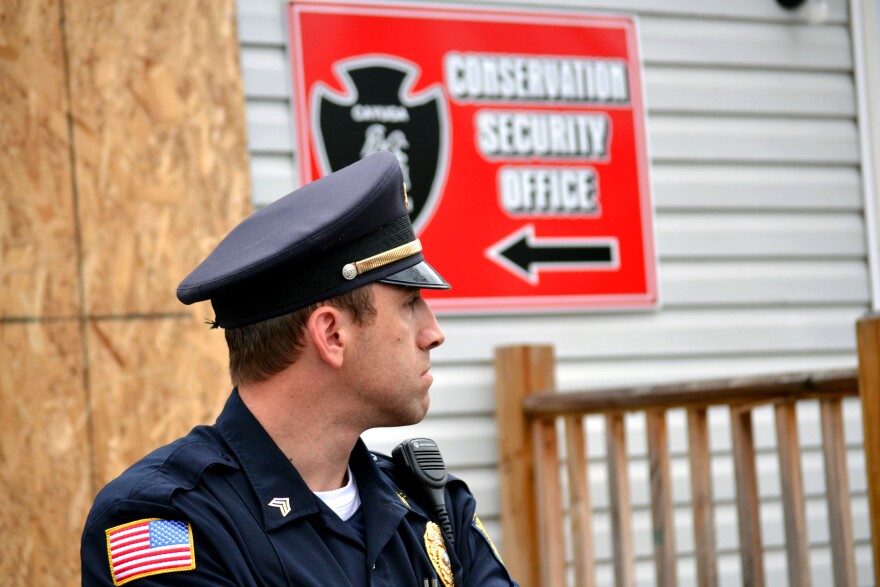The leadership dispute between factions of the Cayuga Indian Nation continues to work its way through bureaucracy, with state courts and the federal government both soon to weigh in.
This week two county courts - Seneca and Cayuga counties - declined to hear a lawsuit brought by Clint Halftown, who claims he is still the rightful federal representative of the Cayuga. That title allows him to control federal money and the nation’s business interests.
A group of Cayuga chiefs, who call themselves the Unity Council, says it removed Halftown from his role a decade ago and he’s refusing to step down. They’ve tried over the past few weeks to gain control of two nation-run gas stations in the Finger Lakes; successfully taking one.
Halftown's lawsuit would bar the Unity Council from entering those nation run businesses.
Dan French, Halftown’s attorney, says the Unity Council is just a vocal minority within the nation.
"They have every right to voice their opposition," he said Tuesday evening. "What they don’t have the right to do is storm facilities, put people’s lives in jeopardy and generally disrupt the peace."
Halftown appealed the county courts' decisions and they’ll be heard by a higher court, the appellate court in Rochester.
"The Cayuga Nation has the sole right to determine its own leadership,” said Unity Council member William Jacobs, in a statement. “Clint Halftown has been removed from his leadership position, and has no right to ask a state court to reinstate him."
The Bureau of Indian Affairs last week asked both sides to present proof they’re in charge of the nation.
The decision by the BIA's appeals court released earlier this year saying it had overstepped its bounds by recognizing the Unity Council's choice for a federal representative was the catalyst for the flare up of the dispute.
For now, the BIA says it will remain neutral until it sees arguments from both sides. It gave the factions a month to do so.
The Cayuga have no written law and rules are based on oral tradition. Leadership and policy changes are done through conversation. But the two sides have struggled to talk out their differences in recent weeks.
"These two sides have shown little inclination to negotiate," French said. "Mr. Halftown and his supporters are more than willing to negotiate. But the Unity Council, to date, has not."



